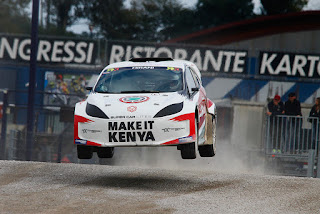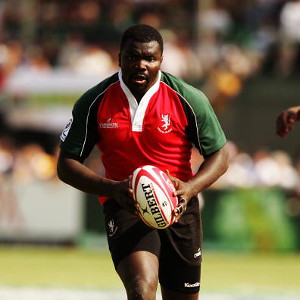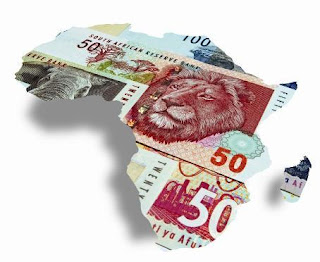The then Pres.Jimmy Carter hurriedly cobbled up an African Tour for Ali to visit 5 African states including Liberia, Nigeria, Senegal, Tanzania and Kenya. His reception in 2 of the states - Tanzania and Nigeria was lukewarm given the countries were quietly supporting socialist ideals and did not take Carter's shuttle sports diplomacy kindly. Tanzania's Julius Nyerere refused to meet Muhammad Ali and almost ruined the February trip to Africa. Nigeria's Shagari also gave a cold shoulder to his sojourn.
 |
| Muhammad Ali and Pres. Moi at State House, Nairobi, Feb 1980 - Image courtesy of Associated Press |
The Kenyan trip gave the US some impetus and won them an ally when Kenya's athletes eventually boycotted the Games in Moscow later in 1980. The 3-day trip to Kenya included a visit to the Starehe Boys Centre, as well as an exhibition fight with Kenya's Muhammad Abdallah Kent. Though the African trip did not score a major victory for Ali, it still endeared him to his adoring fans across Africa and other developing countries.
Later that year, he would lose his title to Larry Holmes in his second last year before retiring in 1981.
Humble Beginnings
Ali's walk into the ring started in Louisville, Kentucky where it is rumoured to have found his bicycle stolen. In his anger, he swore to thump the thief and a cop found him and enrolled him to a local boxing gym. Cassius Marcellus Clay Jr as he was christened by his parents quickly learnt his art and became an amateur boxer winning the Golden Gloves (6 in Kentucky and 2 National) awards. This led to his selection into the US boxing team for the 1960 Rome Olympics Games, winning light-heavyweight gold medal.
For this young boxer who's unorthodox style of dancing around the ring and speed previously unknown of boxers his weight, he indeed announced his arrival onto the scene. His style would have a spice of his bounce as he sought to tire his opponent and deliver his punches with precision much to the delight of the crowds. He often called out his opponents in the ring, driving them mad and in essence making them lose their minds before delivering the coup de grace. Indeed his was more like a calling to change the way boxing was viewed and seen then.
Ali and The Olympics
1960s were a defining era for Clay. Winning the gold medal in Rome was among them. A story is told of how he became angry after being denied service at all-White restaurant resulting in him throwing away his gold medal in the Ohio River. He turned pro in October 1960 amassing an impressive 19-0 fight ( 15 of these being TKOs). In 1964 in Miami, he got his chance to fight the reigning world champion Sonny Liston scoring one of the biggest upsets in the sport.
In the same decade, he joined the Nation of Islam thanks to the influence of Malcolm X and its founder, Elijah Muhammad appropriately giving him the name Muhammad Ali. Having being subjected to the
 |
| Ali & Malcolm X's family- Image Archives |
Later that decade in 1967, Ali was forced to retire from the sport thanks to conviction of a federal court which stripped him of the heavyweight titles (WBA, WBC among others). This was after he refused to enlist in the US Army to join the forces in Vietnam.
Moscow 1980 (again):Ali's entanglement with the Olympics movement would come again in 1980 when the US Government sought to enlist his services to engage in shuttle diplomacy among African states. His statement on the USSR (now largely Russia)'s invasion of Afghanistan buttressed his role. (In Ali’s estimation of the invastion);
... the Soviets were: like a bad child who you’ve told to stay out of the kitchen, stay out of the cookie jar and if you threaten to strike him, he’ll see that you’re not really serious and tomorrow he’ll go take another cookie, or he may break the jar. The Russians have made a move that we should do something about. So we got to do something to show them that we’re serious and if we go play ball with them, go boxing with them, run track or swim with them it just don’t seem that we’re so seriousAtlanta 1996: The US IOC got the chance to host the Olympic Games in consecutive decades in Atlanta. Come Summer in ATL, and the Games organisers kept everyone guessing who would light up the Olympic Torch ( lit at the start of every Games and put off on the last day of the same). And when the spotlight was shone in the night of 19th July,1996 in Atlanta. It is often noted as one of the Games enduring moments and one of the Olympics of triumph over physical challenges. This ceremony would also mark the last of the major public appearance of the legend.
(He was also re-awarded his 1960 gold medal having lost his original medal)
 |
| Ali at Atlanta '96 - Image courtesy of www.olympics.org |
Africa and Ali
Having been a vocal supporter of social injustices, it would only be a matter of time before he connected with the 'motherland'. Well, that may not be entirely true...his African journey came around thanks to the genius of one Don King. Starting out in his role as boxing promoter, Don King had been tasked with securing a venue and money for the fight dubbed 'Rumble in the Jungle'. The bout also coincided with a music concert organised by Jerry Masucci. As if by fate, the two events were quickly picked by Zaire (now Democratic Republic of Congo)'s Pres. Mobutu Sese Seko who paid for hosting the fight to shine a spotlight on the state at the River Congo. The music concert dubbed Zaire '74 featured among others, Miriam Makeba, B.B King, Bill Withers, The Spinners, Celia de Cruz and King of Soul, James Brown. Local acts include Tabu Ley and his Afrisa International Band, Franco's TPOK Jazz and Cameroonian Manu Dibango.
 |
| Rumble in the Jungle - Ali vs Foreman Ticket -image courtesy of www.julienslive.com |
The fight achieved many first being that both boxers were paid in excess of US$ 10 million. Consider too the fight was broadcast across the world (in Africa at some ungodly morning hours), it made the commercial possibilities for pay-per-view which in effect has also led to the diminishing interest in the sport among younger audiences.
The fight also launched the career of Don King who would dominate the boxing promoters' world for the next 2 decades before his influence diminishing in the 2000s.
Ali and the US Govt Hate-Love Relations
For his stand and vocal nature, he was always at crosshairs with the US State officials. His first encounter came when he joined the Nation of Islam and associating with the maverick Malcolm X. Though these early encounters were not as often quoted and publicised, they did form a basis of his love-hate relationship with the authorities. Initially following the teachings of Elijah Muhammad's Nation of Islam, he did convert to a Sunni Muslim in the 1970s.
His second encounter came in 1966/67 when he refused to be inducted in the Army which was engaged with the communist elements, VietCong in Vietnam. He had been drafted in the Army in 1962 and classified as fit for the mandatory draft in 1966. His defiance represented a first for a sportsman and person of his status refusing to bow to so-called nationalism or patriotism.
His third part is the aforementioned shuttle diplomacy in Africa representing the Carter administration's proposal of Moscow 1980 Olympic Games boycott. This again was met with mixed feelings both within the US administration and world. While it didn't yield much given 3 countries ended up at the Games, he did play his part in advocating for non-aggression among states.
His fourth and final act of diplomacy with the US Government was in 1990 when he was sought to negotiate with the Saddam Hussein establishment to release US hostages before the Gulf War. By this time, the authorities acknowledged that in Muhammad Ali they had a Citizen of the World who would best serve as a negotiator to a fellow Muslim. He did secure 15 hostages - a less known but significant triumph in the world of diplomacy.
The awards by the Bush administration among others were a foregone conclusion to a career worth noting.
Louisville Lip:Ali's Quotes
A trailblazer in trash-talking, getting into the opponent's head as well as giving press conference journos a wealth of words to note for their stories. Here are but a few of the many;
"The man who views the world at 50 the same as he did at 20 has wasted 30 years of his life"
"I hated every minute of training, but I said, 'Don't quit. Suffer now and live the rest of your life as a champion"
"Service to others is the rent you pay for your room here on Earth"
"I'm so mean, I make medicine sick"
"I am the greats, I said that even before I knew I was"
"The man who has no imagination has no wings"
"It's just a job. Grass grows, birds fly, waves pound the sand. I beat people up"
...Truly the Greatest of All Time!
Find two great pieces of his career and legacy first published by the Daily Nation and The Guardian respectively;
1. When a Great Sportsman becomes a Cultural Icon by Joyce Nyairo
2. Muhammad Ali: fighter, joker, magician, religious disciple, preacher by Kevin Mitchell
Sources: www.muhammadali.com,Wikipedia, www.time.com, Getty Images, Daily Nation, www.cnn.com














